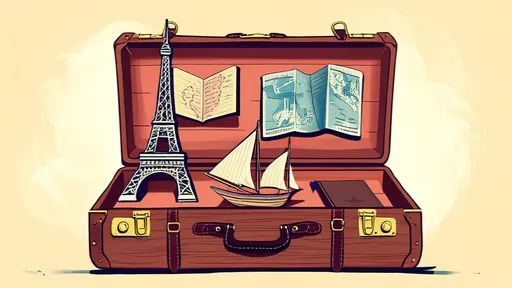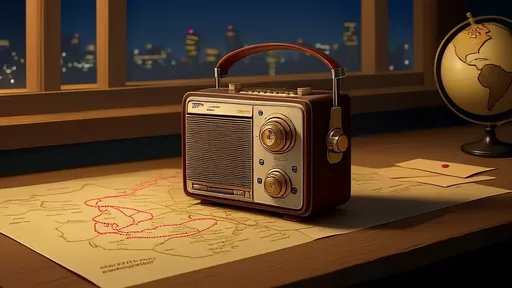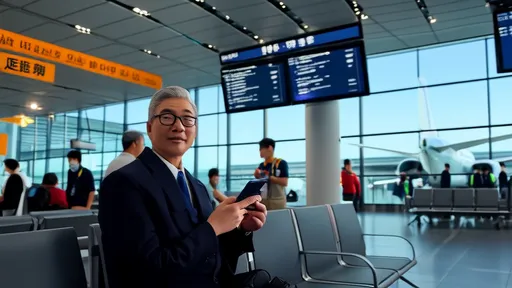Graduation marks a monumental milestone in one's life, a rite of passage that deserves to be celebrated with an adventure that echoes its significance. For many, the idea of a post-graduation trip is tantalizing, a final hurrah before stepping into the 'real world.' However, the specter of a tight budget often casts a shadow over these dreams, making a grand voyage seem like a distant fantasy. But what if I told you that an unforgettable, enriching journey doesn't require a bottomless bank account? It's entirely possible to craft an experience brimming with culture, excitement, and lifelong memories without financial strain. The key lies not in the amount you spend, but in the wisdom with which you spend it. This guide is dedicated to all the recent graduates eager to explore the world, proving that a limited budget is not a barrier, but a creative challenge to design a truly spectacular journey.
Before you even dream of destinations, the most crucial step is to establish a clear and realistic budget. This isn't the most glamorous part of travel planning, but it is the foundation upon which your entire trip is built. Sit down and have an honest conversation with yourself about your finances. How much money do you have saved specifically for this trip? Are there any additional funds you can allocate without causing stress? Once you have a total figure, break it down into categories: transportation, accommodation, food, activities, and a contingency fund for unexpected expenses. This detailed breakdown will be your financial compass, guiding every decision you make and preventing you from overspending in one area and sacrificing another.
Your budget will inevitably influence your choice of destination, and this is where the magic of smart travel begins. Instead of fixating on notoriously expensive cities like Paris, Tokyo, or New York, turn your gaze towards destinations where your currency has more power. Southeast Asia, for instance, is a perennial favorite for budget-conscious travelers. Countries like Vietnam, Thailand, and Cambodia offer an incredible wealth of experiences—from pristine beaches and bustling street markets to ancient temples and lush jungles—at a fraction of the cost of Western travel. In these regions, your dollar stretches significantly further, allowing you to enjoy delicious local meals for just a few dollars, afford comfortable guesthouses, and partake in numerous activities without constant financial worry.
Eastern Europe is another treasure trove for the budget-savvy graduate. While Western European capitals can drain a wallet quickly, cities like Prague, Budapest, and Krakow boast equally stunning architecture, deep history, and vibrant nightlife at a much more accessible price point. You can wander through medieval town squares, visit world-class museums, and indulge in hearty local cuisine without breaking the bank. Similarly, parts of Central and South America, such as Guatemala, Bolivia, and Colombia, provide awe-inspiring landscapes and rich cultural immersion for travelers on a shoestring budget. The goal is to research destinations where the cost of living is lower, ensuring your travel fund affords you a longer, more fulfilling experience.
For those based in the United States, don't overlook the incredible diversity within your own borders. A cross-country road trip can be an epic and affordable adventure. The USA is packed with natural wonders, from the grand Grand Canyon and the rugged coastlines of Big Sur to the smoky mystique of the Great Smoky Mountains. By camping or utilizing budget motel chains, cooking some of your own meals, and focusing on free activities like hiking and exploring national parks (consider an annual pass for great value), you can have an amazing journey without international flight costs. The classic American road trip is a rite of passage in itself, offering freedom, flexibility, and a unique perspective on the vastness and variety of your home country.
Once you've chosen your destination, the next major expense is getting there. Airfare can be the single biggest cost of any trip, but with strategy and flexibility, you can find incredible deals. Be flexible with your travel dates. Flying mid-week, particularly on a Tuesday or Wednesday, is almost always cheaper than flying on a Friday or Sunday. Use incognito mode on your browser when searching for flights to avoid prices being inflated based on your search history. Sign up for fare alerts from websites like Scott's Cheap Flights, Google Flights, or Skyscanner; these services will notify you when prices drop for your chosen routes. Don't be afraid to consider alternative airports, either. Sometimes flying into a smaller, less popular airport a short train ride away from your main destination can save you hundreds of dollars.
Your choice of accommodation will have a massive impact on your daily budget. The era of budget travel being synonymous with dirty hostels is long gone. While hostels are still a fantastic and social option (especially for solo travelers), the sharing economy has revolutionized affordable stays. Platforms like Airbnb often offer entire apartments or private rooms for less than the price of a hotel, and they frequently provide access to a kitchen, allowing you to save money by preparing your own meals. For the truly adventurous, consider housesitting or WWOOFing (World Wide Opportunities on Organic Farms). These programs allow you to stay for free in exchange for caring for someone's home or helping out on a farm for a few hours a day, providing an incredibly deep and authentic cultural experience that money can't buy.
Food is one of the great joys of travel, and sampling local cuisine is a non-negotiable part of the experience. The good news is that you don't need to dine at fancy restaurants to eat well. In fact, the best and most authentic food is often found where the locals eat. Street food stalls, bustling local markets, and small family-run eateries are your best friends. Not only is the food delicious and authentic, but it's also incredibly affordable. Make a rule to have just one meal a day at a sit-down restaurant and enjoy picnics, market snacks, and street food for the others. Visit a local supermarket or grocer to buy fresh fruit, bread, and cheese for a perfect and inexpensive lunch. Embracing the local food scene in this way is kinder to your wallet and offers a far more genuine taste of your destination.
Finally, the heart of your journey—the activities and experiences—doesn't have to cost a fortune. Some of the most rewarding travel moments are free. Walking tours, often available on a tip-only basis, are an excellent way to get oriented in a new city and learn its history from a passionate local guide. Spend your days wandering through neighborhoods, people-watching in public parks, hiking natural trails, and exploring free museums and galleries. Research your destination beforehand; many cities offer free admission to major attractions on certain days of the month. The value of travel isn't measured by the entrance tickets you collect, but by the connections you make, the perspectives you gain, and the stories you will tell for years to come. Your budget graduation trip can be every bit as incredible as a luxury vacation, because its true wealth lies in the experience itself.

By /Aug 22, 2025

By /Aug 22, 2025

By /Aug 22, 2025

By /Aug 22, 2025

By /Aug 22, 2025

By /Aug 22, 2025

By /Aug 22, 2025

By /Aug 22, 2025

By /Aug 22, 2025

By /Aug 22, 2025

By /Aug 22, 2025

By /Aug 22, 2025

By /Aug 22, 2025

By /Aug 22, 2025

By /Aug 22, 2025

By /Aug 22, 2025

By /Aug 22, 2025

By /Aug 22, 2025

By /Aug 22, 2025

By /Aug 22, 2025